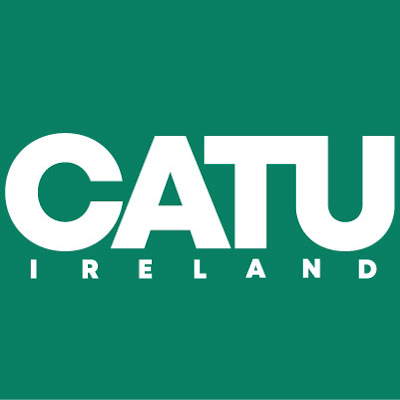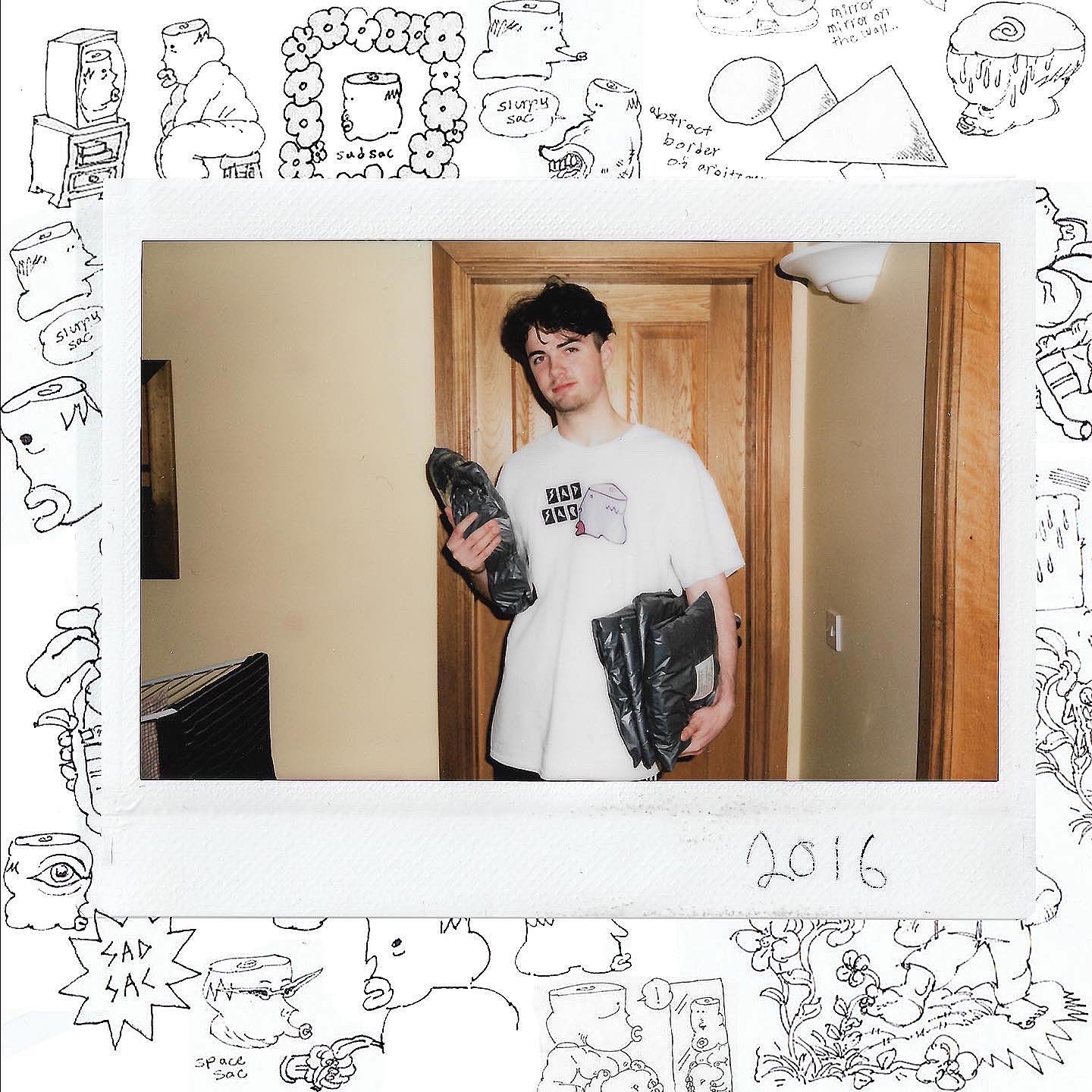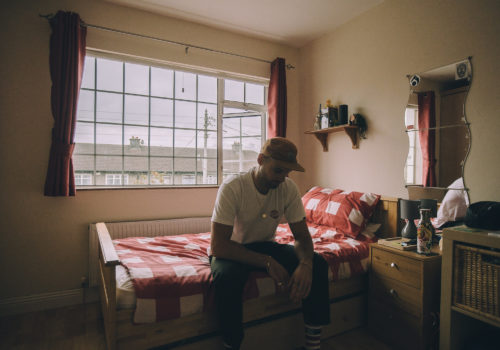22 Questions for 2022: Labour & Housing
Words: Eva O’Beirne
Artwork: Paul Smith
Photography: George Voronov
Photo of SadSac, his own
District has challenged 22 different organisations and people to ask the questions that matter to them for the year ahead. From art and culture to politics and activism, we wanted to reach all corners of this little island to see what problems are most pressing to its people.
In this section we focused on labour and housing, two major issues that affect our population in so many ways.
Healthcare

When will Ireland appreciate health workers more instead of just clapping for them?
Only an hour before we sat down with Róisín O’Connell, the Student/New Graduate Officer from the Irish Nurses and Midwives Organisation, the Government announced a 1000 euro bonus for eligible front line workers. Róisín detailed that, although the bonus is better than nothing “it has to be the first in a series of steps to acknowledge the sacrifices of healthcare staff. Even the new bank holiday, realistically that won’t affect us. Its a 365, 24/7 job.”
Currently, student nurses receive 100 euro per week while on placement, which works out to around 3 euro per hour. Their accommodation allowance is also 100 euro per week. Uniforms and transport are still not subsidised.
IMNO released a statement in October 2020 pleading with the government to stop exploiting student nurses and midwives in order to staff hospitals during the pandemic.
Róisín described the early days of the pandemic as “waiting for the big drop”. Hospital staff waited in anticipation for the first horrific wave of COVID-19 cases, not knowing how bad it was going to be. “I had just qualified when the pandemic started,” she explained.
Róisín believes that a free counselling or PTSD service must be made available to health care workers so that they can emotionally process everything they went through during the pandemic.
“I don’t think people understand the guilt you have while working in a hospital during the pandemic. The isolation and loneliness is unlike anything else. You’re scared about infecting your family, you could be staying in a hotel room hours away from home.”
“I remember when people would come home, change their shoes outside the door and jump right in the shower after a shift so they could avoid giving the virus to their families. The responsibility of knowing you could infect the people you love the most, it is soul destroying.”
Róisín also reflected on her anger around people breaking restrictions while hundreds of student nurses were being exposed to an unknown virus. “For a long time we didn’t know if we were doing the right thing. And to see people break restrictions made us all fear what could happen in terms of case numbers.”
“It was tough to see people flaunting breaking restrictions. I don’t understand how prominent people could justify what they did.”
Healthcare workers became surrogate families for those in hospital and for those giving birth alone during the pandemic. The emotional and physical toll of the pandemic on the health service is almost immeasurable. For many, a nurse was the last person they saw before they died.
“The 1000 euro bonus has to be the first in a series of steps to acknowledge the sacrifices of healthcare staff.”
Róisín O’Connell
The idea of nurses being heroes for doing their jobs can be a doubled edged sword according to Róisín. “It depends on who’s saying it,” she explains. “It can be really moving. I think sometimes it can be hard to acknowledge your work when you compare it to what goes on during a pandemic. When you’re so understaffed, working in such difficult conditions and with people being so sick…..you wonder, do I actually make a difference? Did I do a good job?”
“I think if you do know a healthcare worker, tell them they’re a hero, because they probably don’t think that they are,” Róisín continued.
For more information about INMO, you can visit their website.
Housing

What steps will be taken to hold landlords accountable in Ireland?
The Community Action Tenants Union was formed in early 2020, just before the pandemic hit. In just two years, they have amassed over 1,500 members, across nearly 20 branches in Dublin, Belfast, Maynooth, Galway, Dún Laoghaire and Cork. From assisting renters with understanding their rights to preventing alleged illegal evictions, CATU is a glimmering force against a stark housing crisis.
In terms of what the organisation’s goal is for the year ahead, their communications officer Mitch outlined that CATU wants to “continue being a support for our members whenever they need us”.
“We especially want to get the message out that we’re here for everyone. A lot of the time we can be perceived as a young, white organisation. We want minorities to know that we can support them too.”
The housing crisis has haunted the Irish public for as long as some of us can remember. But according to Mitch, we don’t have to rely on governments to change the status quo for renters in Ireland: “CATU wants to equip tenants with the knowledge to challenge landlords directly without relying on third parties.”
According to the Central Statistics Office, 22.7 per cent of people living in subsidised rented accommodation were living below the poverty line before rent was factored in. Once housing costs are taken into account, this rises to 55.9 per cent.
In a country where financial subsidies don’t work, it feels like the government almost wants us to rent forever. And why wouldn’t they? One in five TDs is a landlord.
The pandemic has made procuring a place to life even more difficult. And circumstances definitely haven’t been helped by the Government’s reluctance to impose rent freezes or rent caps.
“There was a huge adjustment period at the start of the pandemic,” explained Mitch.
“We had to figure out how to meet and organise ourselves amongst this national crisis. We had so many people reaching out to us looking for help, not knowing how they could afford rent.”
CATU has gained national attention for its efforts to prevent evictions during the past two years. But assisting people being thrown out onto the street is just a small part of the work CATU does. Mitch outlined how CATU members frequently band together to create email, social media and phone campaigns to demand landlords cease their malpractices.
Tenant protection is paramount to CATU, and exploitation certainly seems to be on the rise. According to an investigation by the Irish Examiner, landlords have been utilising the housing crisis to solicit sex from tenants. One landlord from Limerick was reportedly advertising a room for a single woman “with a twist”. The ad also highlighted that reduced rent was available for “occasional fun.” The landlord emphasised that sexual activity was required on a weekly basis in return for rent of 200 euro for the first month and 250 euro per month after that.
Mitch acknowledges that the relationship between landlords and tenants has become more fractious over the past two years, mainly because landlords are not facing any consequences. “It hasn’t necessarily gotten worse but the pandemic has definitely revealed the deep cracks and inequalities that exist in this country.”
But what would consequences for landlords look like? “Well, in an ideal world there wouldn’t be landlords,” joked Mitch. “But seriously, genuine accountability would look like more than a slap on the wrist.”
“A real change we would push for is an actual landlord registry. If you want to be a landlord, whether public or private, you have to list who you are, what you do and your address – effectively giving a landlord the same accountability as a business.”
“The pandemic has definitely revealed the deep cracks and inequalities that exist in this country.”
CATU
Mitch emphasised that the housing crisis must be tackled as a nation-wide crisis instead of city by city. In order for tenants to protect themselves amongst the crisis, Mitch advises them to thoroughly read their leases as well as not to assume the best of their landlords. “Make sure rent changes are done in a way that justifies the cost. It can be incredibly intimidating to stand up to a landlord, but joining a union or getting to know your housemates or neighbours will significantly help you in the long-run.”
Young people in Ireland are currently caught in a vicious cycle of having their potential savings and disposable income drained by increased rent prices – how can the system be changed? Other than holding landlords accountable for sub-par properties and unfair leases, Mitch asked the following for 2022: “Will the government commit to a landlord registry? What steps are the public doing to connect with their community? There’s a reason why the first word of CATU is ‘community’ – because that is where all of our power stems from.”
You can check out CATU’s website here.
Development and Urban Planning

Why can’t we address dereliction and the erosion of Ireland’s cultural communities at the same time?
When strolling through most cities in Ireland, it is easy to spot a beautiful abandoned building. For architect Sorcha Maguire, these sites could be wonderful opportunities to not only restore cultural gems but also provide facilities for Ireland’s communities.
Sorcha registered as an architect last year and is currently working in a medium-sized practice in Dublin 8 which primarily deals with public and residential projects. Her interests centre around redevelopment and reimagining public spaces: “The public amenities crisis is a major issue and observing the development of previously derelict sites to help communities has been exciting.”
The Rural Regeneration and Redevelopment fund appears at the intersection of interests for the architect. A total of one billion euro has been promised by the Irish Government to fund infrastructure in rural counties, with 75 million euro granted in 2021. “Every project under this grant is focused and for the community and their needs. Its interesting when you compare this fund to the Dublin equivalent. It doesn’t meet the direct needs of the community in the same way and leaves so many beautiful buildings abandoned, like the Iveagh Market.”
The iconic market building in the Liberties has been derelict for more than 20 years and is the subject of an ongoing legal dispute. Late last year, the Guinness family repossessed the building in the latest twist in an ongoing ownership saga. For over 75 years, the Iveagh Market housed a large number of Dublin’s traders under a 99-year lease agreement between the Guinness family and Dublin Corporation. The building is now at risk of collapse.
“Its just been left to get worse and worse – arguably it is beyond repair. It is the same with the market in Smithfield.”
When asked what site she would restore if given the chance, Sorcha would choose the Iveagh Market or Moore Street: “The current redevelopment plan is very contentious. There’s more of a focus on tourism and turning the street into a retail hub than protecting the street traders.”
Moore Street is a culturally significant street. It was a 1916 battlefield, and it has been the home of Ireland’s oldest outdoor food market since the late seventeenth century. In addition, the road has particular importance to the inner city Dubliners who have for generations worked there.
The UK property group Hammerson had lodged three separate applications with the Dublin City Council for a mixture of retail, office and residential units. This redevelopment will form part of a larger €500 million revamp.
“It’ll just take away all the cultural and social activities that go on there,” commented Sorcha. She also pointed to Tenters Pub as another development which has had its significance drained away: “There’s decisions and development plans being made that are supposed preserve tourists sites and attract visitors but realistically they’re destroying the culture.”
According to Sorcha, development plans, especially in the capital, are frequently made without consulting locals which results in the erasure of the city’s history.
“The lack of public consultation and engagement with these plans has been a major issue. If public bodies would communicate to locals about these projects, maybe we would see less drastic redevelopment plans.”
There’s decisions and development plans being made that are supposed to preserve tourists sites and attract visitors but realistically they’re destroying the culture.
Sorcha Maguire
“When you compare rural towns to Dublin again, controversial plans and builds rarely go-ahead because they’re so well communicated. What’s happened recently in Dublin when it comes to the Cobblestone and the pedestrianisation of Capel Street, we’re starting to see increased engagement having an effect on local authority’s decisions.”
One must wonder if the lack of communication when it comes to developments in capital is deliberate or whether it is as a result of typical bureaucracy. One only has to look at the backlash around the proposed Cobblestone hotel to see that Dubliners genuinely care about their cultural hubs.
Unfortunately, the burden may rest on the people to protect their beloved spots but continuous engagement will hopefully send the message to city councils to put culture first.
Hospitality

In a post-Covid world will we see an increase in employee welfare?
The hospitality sector is a significant contributor to the Irish economy – it accounted for seven per cent of employment before the pandemic started. Currently, there is up to 40,000 vacancies in the industry and according to hospitality worker Fiachra Nolan, this shouldn’t come as a surprise.
Fiachra noted how attitudes in hospitality have shifted since the pandemic started – now there are seemingly no excuses to encourage workers to work while sick. “The Government have admittedly unleashed Pandora’s box with the way they’ve changed restrictions,” he explained. “There was this bubble of wanting to protect both staff and customers and now there’s this free for all.”
Fiachra is also aware that businesses may be too afraid to continue enforcing COVID-19 safety protocols: “Some establishments may be genuinely afraid of violent reactions or being slammed online for wanting to keep vaccine certs or social distancing. Its not necessarily being anti-vax but there is a lot of people who don’t respect hospitality workers enough to wear masks properly.”
A 2019 ESRI report noted that 30 per cent of minimum wage workers in Ireland worked in the hotel and restaurant sector. Jobs in hospitality are often seen as a right of passage for teenagers – their welfare and well-being isn’t necessarily considered when working an understaffed establishment. In hospitality, there’s a fine line between emotional and physical labour: “The awkward thing with hospitality is that you get to know the team you’re working with almost too well, so when you decline an extra shift or need to take time off, it’s almost like you’re letting them down.”
“You know that you’re putting workers in an uncomfortable situation. And it is extremely difficult to shake off.”
Fiachra, who works in Dublin city centre, described himself as “fortunate” as he works in a bar that is incredibly receptive and flexible. But he is aware that this is not always the case. “If you are having difficulties in work I would recommend joining a union or at the very least talking to your co-workers.”
Union membership appear to be an upcoming trend amongst young people in order to secure better working conditions. “Its challenging the status quo of, ‘oh young people have to go through bad jobs to understand what it means to have a good one’,” he explained.
“Some bars capitalise off hiring 16 year olds so they can pay them less, many bars horrifically underpay staff. I wish there was a larger campaign for students and young people to join unions. In order to have any real effect, there has to be a surge in membership and awareness.”
So how can businesses fill the thousands of vacancies? According to Fiachra, the answer is simple. “Higher wages at least would make people want to stay. People sign up to bar jobs knowing that they’re crap and quit after three months because they have no reason to stay. They can get another job that pays fifty cent more in a week.”
On a government policy basis, Fiachra asks for late night transport to become the status quo. “The Nitelink is fine, but it could be so much better. And it is also pretty expensive. It all adds up at the end of the day.”
“The Government have admittedly unleashed Pandora’s box with the way they’ve changed restrictions”
Fiachra Nolan
Fiachra is of the opinion that mass change for hospitality can only come as a result of collective action. “It has to be all or nothing, because if one person turns up to work while everyone is on strike, they’re screwed. There has to be a complete demand for change and we can’t rely on individual managers to change a bad system,” he explained.
“Right now everyone is focused on growing the economy, bouncing back from Covid. But does this include employee welfare? In my opinion, it absolutely requires a renewed effort to ensure better well-being. In a post-Covid world, we need to take this into account more.”
Sex Work

What are our strategies for taking the sex worker rights movement out of the echo chamber?
Ireland adopted the Nordic or Swedish Model in March 2017 which criminalises the purchase of sex, but not the selling of sex. The government hoped this system would tackle human trafficking. Instead, it has made sex workers reluctant to report exploitation, abuse and other crimes.
Kate McGrew moved to Ireland from New York in 2008, and resumed her sex work career in Ireland as it was the best suited work for her to support herself as a performing artist. She is currently the co-convener of the European Sex Workers Alliance and is currently writing a book with Mercier Press.
According to Kate, it is the association of sex work with criminalisation and the stigma around it that has led to a lack of consultation with sex workers regarding laws that directly impact their profession: “As with many other movements, we can tell that the younger generations get it. It is logical to perceive sex worker rights as a labour rights issue. Sex work is a hidden labour, it is an economic activity that is viewed with tolerance and practicality in some places, and prejudice and vitriol in others.”
“Here, the criminalisation of our work and stigmatisation of our lives is a suffering in the direct lineage of oppressions from the church and state, who brought us Magdalene laundries and mother and baby homes. “
Dublin once had the largest red-light district in Europe. Known as the Monto, it was effectively shut down due to the combined efforts of religious organisations and police. Sex work is far from a new profession on this island but extreme stigma prevents much of the population from understanding why sex workers need adequate government support.
When asked about what can be done to facilitate safe sex work in Ireland, Kate had one goal in mind: decriminalisation.
“We need for politicians to meet with us and get behind our decriminalisation bill. We need to fully decriminalise sex work in Ireland. We need Minister for Justice, Helen McEntee, to meet with us as promised for this last phase of the review of the current criminalization law which has only made our lives more precarious, lead to escalated violence and harassment against us, loss of income, arrest and even imprisonment.”
According to numerous sex worker activist groups, the Criminal Offences Bill (2015) and Sexual Offences Act (2017) have made sex workers less likely to report dangerous clients to gardaí. The Sexual Offences Act prohibited the purchase of sex and increased penalties for sex workers sharing premises. The maximum fine for “brothel keeping” increased from €1,000 to €5,000 and the maximum jail term doubled from six months to one year.
Sex workers are actively punished for attempting to live together – if someone were to discover their profession they could lose their home and livelihoods as they have no way of proving they don’t use their residence for their services. If they are assaulted at work and choose to report it, their landlord or employer will be arrested. They are bound by law to suffer in silence as there is no reward for coming forward, only stigma and perhaps retaliation by clients or co-workers.
According to Kate “the full decriminalization in New Zealand and parts of Australia is the closest there is to a legal model that might work best.” She also emphasised that any hypothetical policies “would need to include removal of criminalisation of our work and our income, and instate legal vetted options for ways of working.”
The criminalisation of our work and stigmatisation of our lives is a suffering in the direct lineage of oppressions from the church and state, who brought us Magdalene laundries and mother and baby homes.
Kate McGrew
Decriminalising sex work not only will provide sex workers with more safety, but will also allow them to organise as labourers: “As activists for this group of workers, we agitate for laws that will make the work safer for all of us, and give us the ability to unionize like other labourers, to have recourse to justice and safe options.”
“Fundamentally, we all want our income to not be criminalized, we all want the ability to work without having to deal with the risks of breaking the law or having to rely on a black market,” explained Kate.
But she has hope for Ireland, noting that new statistics indicate a more positive view of the profession: “Quietly, I think that most people in Ireland are reasonable and think we should have the option of legal safer ways of working. A recent poll by Amnesty Ireland found that 77 per cent of people think that sex workers should be consulted on the laws around our work.”
You can check out all of Kate’s current projects here.
Full Time Creative

When will Ireland stop putting commercial goals on artists and start appreciating their craft?
Daniel Walters, also known by his brand name ‘SAD SAC’, is an Irish creative originally from Donegal. Speaking to District from his new home in France, Daniel described how he ‘fell’ into his career as an artist: “The funny thing is that I never thought I could pursue design or art as a career. It found me.”
In secondary school, Daniel felt restricted by the art curriculum, noting that it encouraged select creativity. “I thought you had to be good at drawing hands or eyeballs to be an artist, or else you were terrible. It felt segmented towards the individuals that were good at those tasks.”
“Art for me wasn’t an option. It was something my parents didn’t encourage. No one else in my family was a creative and I didn’t even know what being a creative person meant.”
“I remember saying to my dad “why can’t I do art? I’m really good at it”. He was very pessimistic about it and said “well you can’t do stuff that’s easy, that’s not how life works”. That’s the family I came from and they’re so supportive now but they were fixated on how I could create a career,” explained Daniel.
A self-described “messer” and “underdog”, Daniel took a gamble on an up-and-coming site called Depop and began to sell vintage clothes in his spare time. In 2021, he became the biggest Depop seller in Ireland and was in the top 200 sellers worldwide. “I’ve never worked a normal job in my life,” said Daniel.
“I was brought up on car boot sales and always had a keen eye. A decade later, I’m designing my own stuff.”
His brand ‘SAD SAC’ emerged organically in 2016 as a response to a dark time when he was suffering from mental health problems. When describing his teenage years, Daniel noted that he never felt the need to move to the capital to expand his career: “It’s very teenage-dream type shit isn’t it? ‘Oh I want to be in the city and ride my skateboard and take photos’ – I never felt the need to join in on the fantasy. I loved growing up in Donegal.”
“Being around a community that didn’t understand being a creative did inspire me and continues to inspire the satirical takes I express now but I get the pressure of having to make money instead of creating good art. I love the idea of making fun of what dreams are supposed to be, going to LA and dressing crazy. It annoys older people and that is what I’ve been trying to do since the beginning.”
Being surrounded by non-artists has been a defining aspect of Daniel’s career. He’s of the option that being a creative in a place where creatives aren’t the norm has given him a sense of resilience and determination to be true to himself rather than pleasing an audience. “Its something I’m really proud of but it didn’t make sense as a teenager. There’s all these fabrications of what you need to be as an artist but it is a façade.”
When it comes to his passion projects, Daniel is fully committed to the idea that each piece has its own story: “Every single design I make always has a message and tells a story. Every single doodle is a tale from my timeline, but I could never draw anything that doesn’t mean anything to me.”
“Being around a community that didn’t understand being a creative did inspire me and continues to inspire the satirical takes I express now but I get the pressure of having to make money instead of creating good art”
SAD SAC
This view that art should encompass a deeper meaning perfectly intersects with his ideology that Ireland cannot invest in arts programs and expect a form of monetary return. “I hate the idea of giving money to artists for no reason,” said Daniel. “Alhough that may seem harsh.”
“What I mean is that I don’t want art to be diluted into a product or for money to take more importance than creativity. A lot the time when I hear that subsidies are coming in, I hope it doesn’t pressure creatives into pumping out more works.”
You can check out the SAD SAC website here.
Elsewhere on District: 22 Questions for 2022: Politics & Activism





